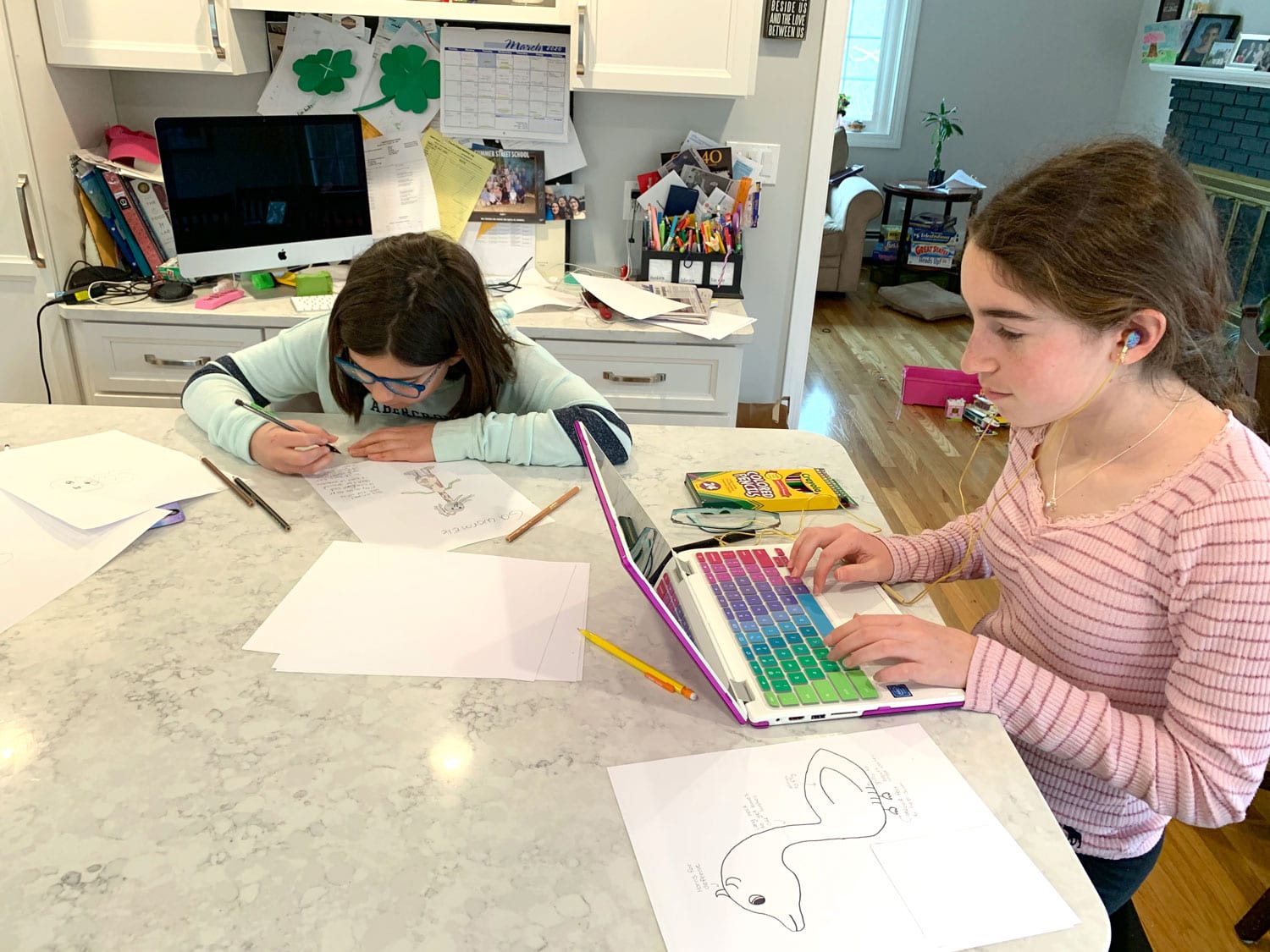LYNNFIELD — The school district rolled out its new remote learning program last week to unify at-home education during coronavirus after providing students for the last month with lesson ideas and school resource information.
While remote learning had its fair share of tweaking and anxiety in the first week it was introduced, School Superintendent Jane Tremblay said the program was extremely successful, thanks to the many hours of work on the part of students, families, faculty and staff.
“I recognize how stressful this has been for everyone, but it is a true test of grit, resilience and perseverance,” she said. “Now that we are in week two, things have been a bit less frantic as we work out the kinks on the fly. Everyone is adjusting to this new normal.”
The Huckleberry Hill and Summer Street elementary schools are posting weekly lessons Sunday nights on their new joint website, giving parents one-stop shopping for lessons that will be posted daily by subject.
The lessons’ focus is on critical skills (math and reading). The website also offers online and offline options as well as enrichment activities.
“We thought parents needed one place to go where they could get everything they needed,” said Summer Street Principal Karen Dwyer. “We are starting with the basics and then will probably integrate social studies and science at some point.”
Teachers will hold whole-class meetings via ZOOM two times a week so students can visually connect with their teachers. Every Sunday night, teachers’ virtual office hours will be established which will be offered three times a week for one hour at a time.
“We were able to do this only because the collaboration between both schools was so important to have one elementary school program,” said Huckleberry Hill Principal Melisssa Wyland.
At the middle school, teachers are holding hourlong lessons Monday through Friday from 9 a.m. to 1 p.m. Subjects include math, science, world language and humanities. There will also be self-directed exploratory sessions as well as special ed sessions.
Two core subjects are featured on Mondays and Tuesdays, while there are Zoom sessions and designated virtual office hours the rest of the week. Students are free to do their work anytime during the week and will turn in assignments at the end of the week.
“The beauty is the teachers have worked together to have the same plan for each grade so that if any teachers are sick, others in the same grade can fill in,” said Principal Stephen Ralston. “Grade 5 math is grade 5 math, it’s that simple.”
At the high school, specific times and days for large group sessions of 20 to 40 students have been set aside for each subject using Zoom meetings and pre-recorded video presentations. Teachers will set up other times for virtual office hours where students can get help individually or in small group sessions.
Cleary said that like other schools in the district, the high school is looking to keep the workload to a manageable level, likely one assignment or problem set each week.
Per recommendation of Massachusetts Department of Elementary and Secondary Education Commissioner Jeffrey Riley, the high school will also look to begin introducing new material where appropriate. Advanced Placement tests will still be held using an abbreviated version of the test.
“We feel confident that we have done what we need to do to have our students prepared,” said Principal Bob Cleary “The angst is the kids have prepped and done everything they need to, only now it’s all changed.”
Lexie Allain, the top-ranked student in the senior class, said her AP physics class is scrambling to adjust to the abbreviated test.
“My AP physics class had to completely change direction once the test got changed because some of the things we had covered are not on the test,” she said, adding that she is spending as many as five hours a day working on her own, most of it catching up on physics. “It’s still less than when we were in school when I had seven hours of homework every night.”
Special Education Director Roberta Keane that her department was able to get families immediate intervention through virtual consultations following the state’s closure of schools.
“Services are going to look differently in this national emergency,” said Keene. “Many students and families struggled being out of their normal routines. The key is ongoing collaboration with families and giving families notice of what remote services are available.”
Services include assignments, projects, providing modified general education materials and providing resources to keep students engaged. The department will also conduct regular and ongoing check-ins by phone, email or district-approved social media and will have established office hours to work out problems and behavioral issues that may arise in the home.
IEP meetings will be held remotely, but initial or three-year evaluations that require face-to-face observations will be suspended until school reopens.

